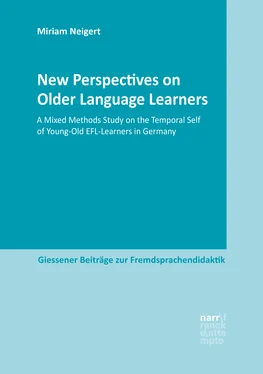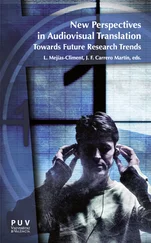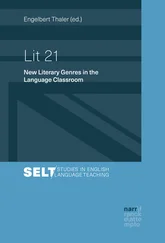Miriam Neigert - New Perspectives on Older Language Learners
Здесь есть возможность читать онлайн «Miriam Neigert - New Perspectives on Older Language Learners» — ознакомительный отрывок электронной книги совершенно бесплатно, а после прочтения отрывка купить полную версию. В некоторых случаях можно слушать аудио, скачать через торрент в формате fb2 и присутствует краткое содержание. Жанр: unrecognised, на английском языке. Описание произведения, (предисловие) а так же отзывы посетителей доступны на портале библиотеки ЛибКат.
- Название:New Perspectives on Older Language Learners
- Автор:
- Жанр:
- Год:неизвестен
- ISBN:нет данных
- Рейтинг книги:4 / 5. Голосов: 1
-
Избранное:Добавить в избранное
- Отзывы:
-
Ваша оценка:
- 80
- 1
- 2
- 3
- 4
- 5
New Perspectives on Older Language Learners: краткое содержание, описание и аннотация
Предлагаем к чтению аннотацию, описание, краткое содержание или предисловие (зависит от того, что написал сам автор книги «New Perspectives on Older Language Learners»). Если вы не нашли необходимую информацию о книге — напишите в комментариях, мы постараемся отыскать её.
New Perspectives on Older Language Learners — читать онлайн ознакомительный отрывок
Ниже представлен текст книги, разбитый по страницам. Система сохранения места последней прочитанной страницы, позволяет с удобством читать онлайн бесплатно книгу «New Perspectives on Older Language Learners», без необходимости каждый раз заново искать на чём Вы остановились. Поставьте закладку, и сможете в любой момент перейти на страницу, на которой закончили чтение.
Интервал:
Закладка:
Major life transitions (in their context: educational transitions) seem to explain why individuals turn to Cooley’s looking glass once more to reassess their self-concepts:
The point is that looking-glass self-processes are appropriately reactivated in new academic and social settings, although such activation is unlikely to persist as students develop a new understanding of the self in the face of the opinions of those in the new campus culture. (ibid.)
With regard to the young-old then, we need to ask if and to what extent retirement, as a major life transition in the life course (see chapter 2), has a similar influence on self-concept formation. Leaving the workforce changes our social environment when we, for example, no longer see our former colleagues that often (if at all). Retirement leaves us with more free time that many retirees feel required to structure with daily and weekly routines. Among these are often new activities that have been either put off or neglected for a long time such as pilates, a computer class, starting to learn Italian, or refreshing English language skills. The new challenges and new people (classmates and teachers) the young-old meet shortly before, during, and after the transition from work to retirement have the potential to re-shape their self-concept (see also Mercer 2011a: 152f.).
The role of others in forming our self-concepts is a subject that was also taken up by Marsh (1986) when revising the model of Shavelson et al. (1976). As noted in section 3.2.2, when testing the model in various studies, researchers were puzzled by the close to zero correlation between math and English self-concepts (Marsh 1986), even though they predicted all academic self-concepts on that level correlate to at least some extent. Marsh explained this with the Internal/External (I/E) frame of reference model theory. According to his theory, students formed their verbal and math self-concepts based on internal and external frames of reference (ibid.: 133):
Students compare their perceived math performance with their perceived verbal performances and other academic areas ( internal ).
They compare their perceived math and verbal performance to the perceived abilities of their peers in one particular subject ( external ).
To illustrate this, Marsh gives the example of a student who correctly perceives that both his or her verbal and math performances are below average compared to peers’ performances in these areas (i.e. external comparison), but who also perceives his or her math abilities to be better than his or her verbal ones (i.e. internal comparison). Then, according to Marsh, “[d]epending on how these two components are weighted, this student may have an average or even an above-average self-concept in mathematics despite his or her poor math skills.” (ibid.: 133) Linked to this, researchers also reported differences in self-concept based on gender, with female learners favouring verbal and male learners favouring math self-concepts (Marsh 1986; Hattie 1992: 176-180; Mercer 2011a: 80-83). It is arguable, however, if and to what extent these gender-biased beliefs regarding verbal and math domains are existent in the cohort of young-old in this study.
Mercer (2011a) has used the I/E frame of reference in her study on language learner self-concept in order to illustrate the self-concept formation of university students. Within her study, the internal frame of reference focuses on comparisons across other domains (e.g. other foreign languages learned) and learner beliefs regarding learning a foreign language (ibid.: 125). The external frame of reference refers, for example, to social comparisons, feedback from significant others, (perceived) experiences of success and failure, and critical incidents (ibid.: 161). Both internal and external frames of reference – though not defined as broadly as in Mercer’s study – have also proved to be significant in the analysis of this study’s interviews (see chapter 6). The findings of Mercer’s study have also indicated a change of L2 self-concept over time, experience, and learning context (i.e. the transition from school to university). Thus, it is hoped that the findings of my study of young-old language learners which uses a mixed methodology might expand these insights to later stages in life (pre- and post-retiring) and other learning contexts (vhs centres).
What the overview shows once more is that the majority of studies on the learner self – here more specifically related to the I/E frame of reference theory – are focused on younger age groups. It would therefore be of great interest to expand the idea of internal and external comparisons to the learning context of young-old language learners. Do the young-old compare their language learning performance to their previous learning experiences (internal) and to the performance of their young-old classmates (external)? Thus, in particular, the interview conducted for this study contained questions about the language learning group and other learners in the group (see chapter 6).
3.2.4 Definition by Demarcation: What Self-Concept is Not
In the following, I would like to further sharpen the terminological edges of self-concept by contrasting it with other self-related terms. Since there are numerous self-terms1, I will focus on those most commonly discussed in today’s SLA-research, namely self-esteem, self-efficacy, and self-confidence. In what ways do these terms differ from, and overlap with, self-concept?
3.2.4.1 Self-Esteem
William James (1890: 310) gave a very early, if not the earliest, definition of self-esteem in the mode of a formula:
pretensions/success = self-esteem
Based on this formula, we form our self-esteem in a particular area of our life or domain (e.g. learning a language) based on how highly we value it or aim at succeeding in it. If a student has strong aspirations (i.e. pretensions) to, for example, be good at speaking English, then, because he or she thinks that this is important, success or failure in this endeavour affects his or her self-esteem more strongly in this particular domain.
While self-concept is what we believe about our self, self-esteem involves an evaluation – positive or negative – of what makes up our theory of our self. In other words, self-esteem is a subjective evaluation of one’s worth (Orth & Robins 2014: 381). Rubio (2014: 42) compares the difference between self-concept and self-esteem using the metaphor of a picture: “Self-esteem would correspond to the resulting evaluation of the picture; while the picture would be the self-concept.” The keyword when it comes to differentiating the two terms here again is “evaluation.”
3.2.4.2 Self-Efficacy
The slogan “Yes, we can!“ used in the US presidential elections in 2008 nicely captures what self-efficacy is all about. The way we evaluate our capabilities to perform a task depends on our self-efficacy regarding that particular task: “Self-efficacy differs from self-concept in that it is concerned less with the skills and abilities one thinks one has but more with what one can do with whatever skills one possesses.” (Skaalvik & Skaalvik 2008: 224). Linked to this, self-efficacy can also be considered to be more cognitive than self-concept in that it contains more concrete or explicit judgments of one’s own perceived abilities (Mercer 2011a: 15; Leary & Tangney 2012: 10).
Self-efficacy can guide and predict people’s behaviour, motivation, and decision-making. Thus, it can influence the way we think about our abilities, e.g. whether a language learner approaches the experiences of language learning with an optimistic or pessimistic mindset (Bandura 2001, 2012). But prior to that self-efficacy already comes into effect: when making the decision to attend a language class, a person is convinced that she has what it takes to learn a language. Bandura (2001: 10) writes: “It is partly on the basis of efficacy beliefs that people choose what challenges to undertake, how much effort to expend in the endeavour, how long to persevere in the face of obstacles and failures, and whether failures are motivating or demoralizing.” Whether at the moment a person takes on language learning or in the midst of the common ups and downs of the language learning experience, self-efficacy beliefs continuously act as guides.
Читать дальшеИнтервал:
Закладка:
Похожие книги на «New Perspectives on Older Language Learners»
Представляем Вашему вниманию похожие книги на «New Perspectives on Older Language Learners» списком для выбора. Мы отобрали схожую по названию и смыслу литературу в надежде предоставить читателям больше вариантов отыскать новые, интересные, ещё непрочитанные произведения.
Обсуждение, отзывы о книге «New Perspectives on Older Language Learners» и просто собственные мнения читателей. Оставьте ваши комментарии, напишите, что Вы думаете о произведении, его смысле или главных героях. Укажите что конкретно понравилось, а что нет, и почему Вы так считаете.












